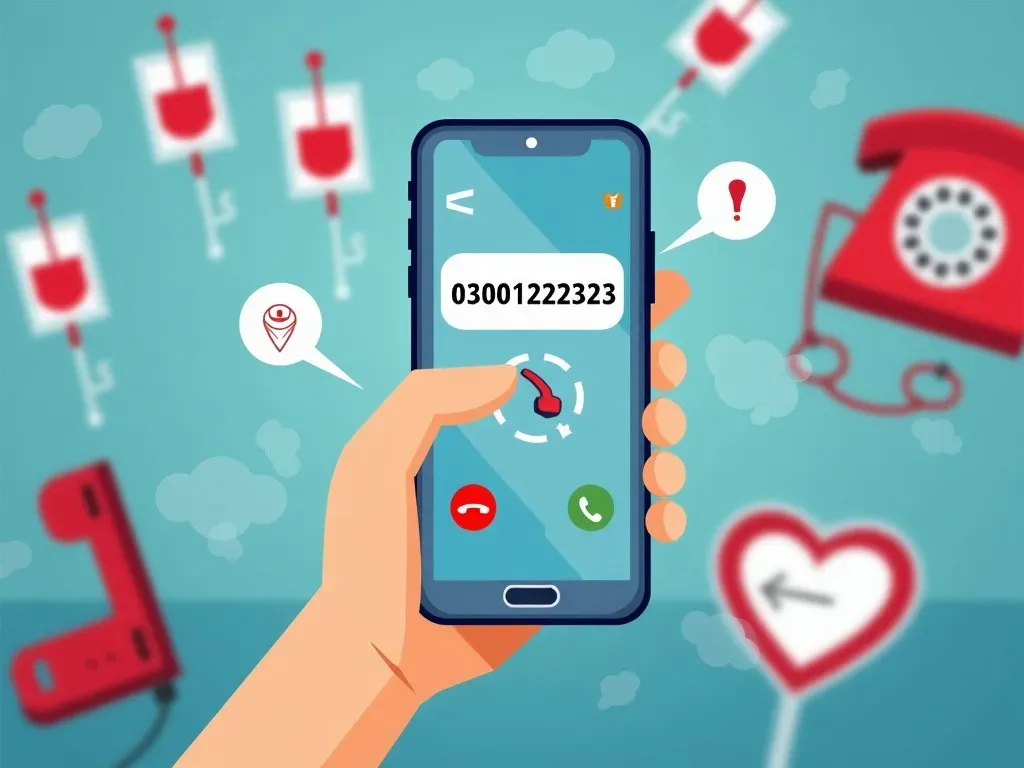Every day, millions of people receive phone calls from numbers they don’t recognize, and many find themselves wondering if it’s a legitimate call or just another nuisance from a spam caller. Among these numbers is 03001232323, which, while legitimate, raises questions and concerns for those who receive a call from it. Why are you getting calls from this number? Should you be worried about spam? What action should you take if you receive one of these suspicious calls? In this article, we’ll address these pressing pain points, building trust and offering solutions for effectively handling calls from 03001232323.
When a call comes in from 03001232323, it can create anxiety or hesitation. Knowing that this number is associated with NHS Blood Donation is crucial. However, with the prevalence of fee-charging services and spam calls, it is wise to remain vigilant and educated. Here, we will guide you through who is calling, user experiences, and provide effective strategies to address not just this particular number but also any unsolicited calls you may encounter.

Table: Caller Information for 03001232323
| Caller Name | Purpose of Call | User Rating | Notable Comments | Source |
|---|---|---|---|---|
| NHS Blood Donation | Appointment scheduling for donations | 4.5/5 | Trusted service, usually pleasant conversations | NHS Blood and Transplant |
| NHS Blood and Transplant | General inquiries and support for donors | 4.4/5 | Helpful staff, responsive to donor queries | NHS Blood and Transplant |
| Public Service | Health-related initiatives | 4.0/5 | Important for community health | – |
| Unknown Callers | Telemarketing/spam | 1.0/5 | Waste of time, annoying | Various sources |
Identifying the Source of 03001232323
Receiving a call from 03001232323 indicates it’s likely associated with the NHS Blood and Transplant service. This organization is dedicated to managing blood donation across the UK, contacting donors for appointments, and supporting vital activities related to blood and organ donation. They play a significant role in ensuring that blood and its components are available for those in need. Understanding this context is essential for anyone grappling with the uncertainty of such calls.
User reactions to 03001232323 vary from relief to confusion. Many individuals recognize the number as trustworthy, associating it with their previous donations, while others may feel apprehensive, mistaking it for telemarketers or spam calls. Experiences shared by callers reveal a mix of emotions, from the reassurance that they are on a priority health service to the frustration felt when initial attempts to decline or screen calls are ignored by persistent repeat dialing.
User Experiences with 03001232323
Common experiences associated with the number 03001232323 often reflect both the positive and negative facets of unsolicited telephone outreach. Many former donors report feeling good about receiving calls, knowing it pertains to a cause that saves lives. However, there is still a swath of users voiced concern, primarily due to the high volume of unwanted sales calls that swarm the phone lines today.
Feedback collected from social media platforms and user forums often highlights positive encounters with NHS representatives, indicating excellent service and dedication. Yet, other experiences reveal the frustration of persistent follow-ups or a missed call that has led many to decipher between potentially beneficial calls versus those simply taking up time for a sales pitch. The generational divide also plays a role in perception; younger callers often lean toward skepticism about the number, while older generations may view it as a more trustworthy outreach.
Strategies to Handle Nuisance Calls
Step 1: Recognizing Genuine Calling Numbers
It’s crucial to ensure you can differentiate between legitimate calls and those that are unwanted. Keep a record of numbers like 03001232323, particularly those tied to reputable organizations such as the NHS, and confirm their authenticity through online searches or by consulting with your peers. If you receive a call from this number, acknowledge that it’s likely from NHS Blood Donation, which aims to engage with you based on your history of blood donation.
Step 2: Politely Declining or Handling the Caller
When you do answer a call from 03001232323 but feel it’s the wrong time to engage, let the caller know directly but respectfully that you’re unable to talk at the moment. Use phrases like, “I appreciate the call, but I’m unable to speak right now. Can I call back later?” This way, you maintain professionalism while ensuring you can manage your time effectively.
Step 3: Legal Protections Against Unwanted Calls
Understanding legal rights against unsolicited calls can empower you to deal with them more effectively. Many countries have regulations in place, offering a way to report nuisance calls and protect yourself from their persistence. For example, in the UK, customers can register with the Telephone Preference Service (TPS) to opt out of unsolicited sales and marketing calls. If you find that you are continually bothered by calls you identify as spam, raise your concerns with your phone provider or look into legal reporting guidelines through regulatory bodies.
As we delve deeper into the implications of receiving calls from 03001232323, it’s pivotal to consider the surrounding information that helps elucidate this inquiry further. Understanding the nuances of identifying genuine calls helps not only in averting potential scams but also harnesses the valuable resources and services that organizations like the NHS provide.
In today’s fast-paced world, misinformation can arise swiftly. It’s critical to remain informed and proactive in discerning trustworthy calls from spam. As we navigate the landscape of phone communications and services, always seek clarity on the number calling you—especially when it stands as a key pillar in maintaining health resources and community support.
Subsequent sections will unravel further aspects of human experiences with 03001232323, painting a comprehensive picture, and unveil additional guidelines for dealing with potential nuisance calls, ensuring that you are not only prepared but empowered.


